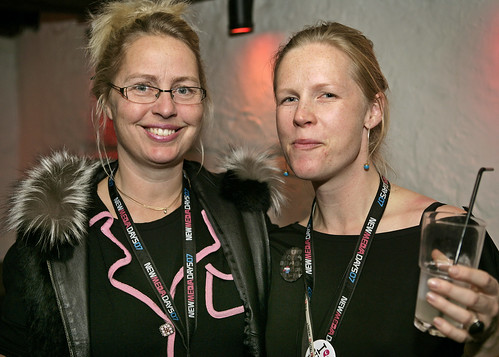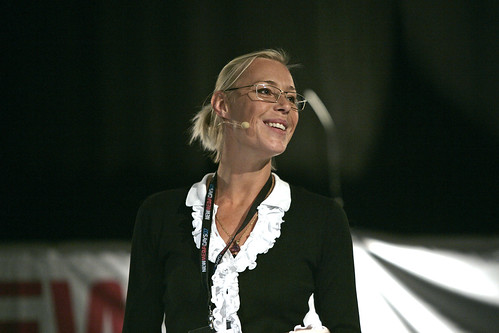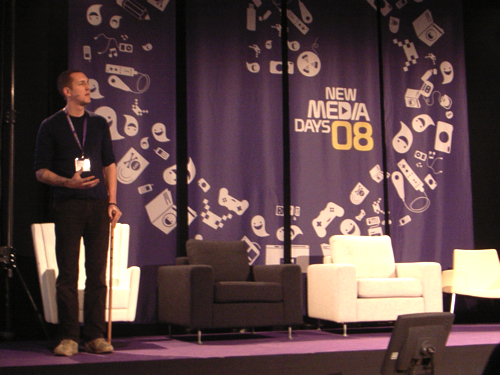Why would anyone work for old, print media? It’s just dead trees sliced really thin, isn’t it? Ben Hammersley is the Associate Editor of Wired Magazine and disagrees heavily with old media giving way to new media. Actually he thinks that web 2.0 is the longest suicide note in the history of media as such.
This is an account of Ben Hammersley on stage with a cane that he nearly had to use afterwards for fending off angry reactions from the crowd.
“As the generally accepted argument goes: Old media is dying and new media is very successful. Therefore we should stop what we were doing before and make everything into a Facebook application. So that’s what every business is doing.
We’re told that the audience knows more than we do, but they’re basically just saying whatever they want on wikis, blogs and talk boards. What they’re saying is however not very good. Web 2.0 is like an asylum in which someone who thinks he’s Jesus is supported in that belief. It’s a fact that some people are better writers than others – and in fact the journalists being paid to do it are some of the best.
The only thing we can do, which is worth doing is to ignore the technology. Don’t just do what the technology tells us to do.
Anyone working within media will have to make a choice: Embrace the cheap and the amateur or embrace the very expensive. Everything in between will not survive. Monocle by Tyler Brule is an example of a magazine, who is doing the latter and doing it good.
Old media IS dying. But it’s because it has forgotten what it’s good at: Reporting, photography. It’s an industry worth being proud of. It’s members have skills that nobody else has. They are the tools of success, but it’s all about the nerve and integrity to go be the best in your field.
Don’t throw away your self-confidence just because Facebook is looking good this year. Over the past 5 years we’ve seen a massive loss of confidence and are in danger of killing the industry from the inside. The popular solution was to embrace web 2.0 and the users, when they were actually wrong solutions to something that is not a problem.
Web 3.0 as Ben sees it is about turning away from the web and the technology and focusing on the inherent skills of the business instead. Focusing on incredibly high quality in everything we do instead of letting users decide the level of ambition. Why have we forcibly amateurized ourselves?! No other industry has ever done that.”
Reactions from the users were quite heated after this negation of the web 2.0 hype. Among opinions from the angry mob were “elitist bollocks” and “sell out” aimed at Hammersley, who himself coined the web 2.0 term podcasting: The notion that anyone with a digital recorder can create and publish audio journalism on the web.
Hammersley almost succeeded in adding a headache to the pains in his leg, but defended his opinions: Amateurs that are really good writers could be reined in as freelancers, the industry should believe in themselves and support the individual reporter in putting food his table, i.e.
Twitterers remarked during the session that Hammersley was out of shape. Hammersley admitted only that shades of grey would suit the argument, but unfortunately they couldn’t be fitted to the timeframe of the session.
I find that a true shame, as this was without a doubt one of the most provoking talks and promising post-sessions of New Media Days 08 until now.
I hope you’ll join me in continuing the discussion of these issues on the blog.
I hope Mr. Hammersley thinks me worthy of this space for personal expression.
On the other hand… I’m part of Jonathan Harris’ statistics that Danish bloggers are 13 times surer of themselves than the world average. If you have confidence in yourself and what you do – isn’t that what it’s all about? Nerve. Not the question of which tools you’re using?
Looking forward to user generated comments…















